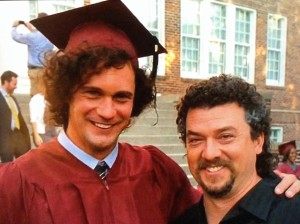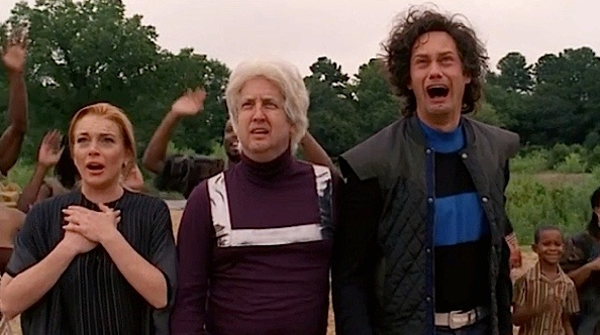 I was generally repulsed by “Eastbound and Down” in its first season. I took too seriously how big a jerk Kenny Powers was in adjusting to a post-baseball career. The participation in front and behind the screen by Will Ferrell made it just about as unappealing as his many and unfunny projects.
I was generally repulsed by “Eastbound and Down” in its first season. I took too seriously how big a jerk Kenny Powers was in adjusting to a post-baseball career. The participation in front and behind the screen by Will Ferrell made it just about as unappealing as his many and unfunny projects.
Something happened along the way, in well delineated seasons when he went to Mexico to rehabilitate his pitching career, then back to Hampton Beach, where he reveled in his new minor league stardom, though he had competition.
This season started well too, with Kenny chaffing against a normal life as a car rental clerk and getting back into sports show business and some hedonism through TV talk shows.
In its way, over the years, behind all the crude turns and vulgar behavior, had a sweetness to it, an earnest, simple-minded optimism that made it strangely akin to that other slightly twisted HBO comedy on modern struggle and advancement, “Enlightened.”
For its series finale Sunday, the series didn’t want to do anything too special. There’s probably too much pressure for TV series to end big, or memorably these days. Once, they just ended, or at least drove into the sunset.
But “Eastbound” managed a pretty good summarizing final episode, albeit one with surprises and guest stars.
First off was Sacha Baron Cohen in his first HBO series since his “Ali G Show,” portraying a TV executive so twisted and venal he tries to seduce a stewardess by exposing himself and his bank account, both in the presence of a 13-year-old he is supposedly mentoring.
He’s head of the network giving Kenny his new network show, meant to be a kind of outrageous daytime Mory Povich show. His idea for Kenny is to invite the disgraced Guy Young on the show for his first chance to give his apology.
At the last minute, though, his idea is to humiliate Guy even further.
To this Kenny will not agree and he gives a big speech about doing the right thing that is coincidentally seen by just about everybody who has been on the show — a good way to include everyone on the last episode.
Then, in a way that didn’t require an extra 15 minutes, as it did on “Six Feet Under,” we get a glimpse at the future:
He makes a successful film about his life, the kids grow up, and the daughter grows up to be Lindsay Lohan (or played by her, in the show’s second surprise cameo). His wife April (done so well and expressively by Katy Mixon) is shot in a random mugging, turning Kenny into a homeless drug addict. Once out of rehab, though, he moves to Africa (in a futuristic hovercraft), marries a native woman there, has a bunch more kids and becomes a respected member of a tribe. And with a foot-long grey beard, Kenny dies one blissful day in Africa.
His first kids — and a futuristic Stevie Janowski — come to the tribe in their own hovercrafts in time to see him burn on the funeral pyre. And amid the uplifting ending, we continue to hear Kenny’s narration: “The end. Cut to black. Audience goes @#$%ing ape hit.”
It’s actually just the end of his screenplay he’d been working on so long.
We see Kenny working on it, while clutching the baseball that got him started, as April comes to get him.
With a more realistic ending, and not a fantastical Kenny Powers one, the series ends on a nice note. And the audience, if not apeshit, is warmly appreciative.
